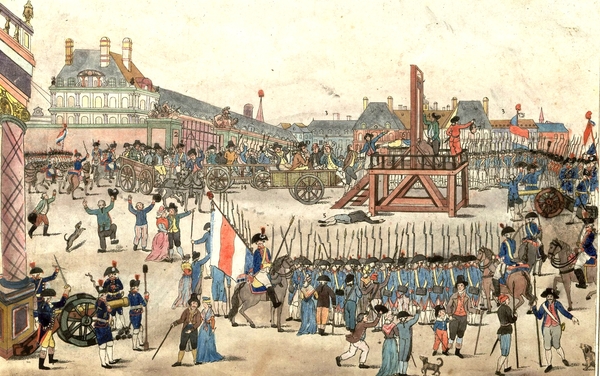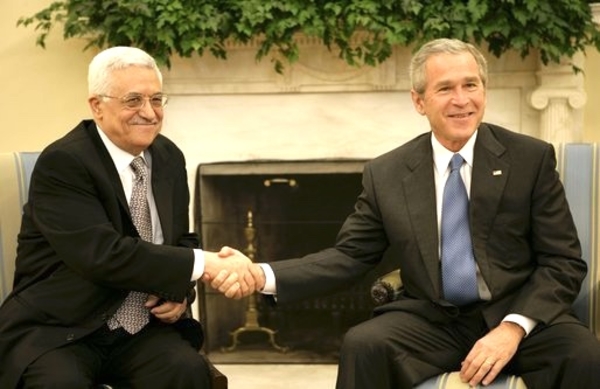 Joel Rosenberg: Daniel, welcome to Inside The Epicenter. I want to dive right in on your basic premise. You've got a new book out, Israel Victory: How Zionists Win Acceptance and Palestinians Get Liberated. The core of your premise, as I understand it, is that unless Israel achieves victory over the Palestinians, and they feel like they've been defeated, the Palestinians are not going to be ready to make peace, and Israel should not be offering peace. You liken Palestinians to Japan: that Japan felt vanquished after World War II. We're not talking about using nuclear weapons, but we're saying they knew they lost and they wanted back into the peaceful community of nations. Now we have no problem with Japan.
Joel Rosenberg: Daniel, welcome to Inside The Epicenter. I want to dive right in on your basic premise. You've got a new book out, Israel Victory: How Zionists Win Acceptance and Palestinians Get Liberated. The core of your premise, as I understand it, is that unless Israel achieves victory over the Palestinians, and they feel like they've been defeated, the Palestinians are not going to be ready to make peace, and Israel should not be offering peace. You liken Palestinians to Japan: that Japan felt vanquished after World War II. We're not talking about using nuclear weapons, but we're saying they knew they lost and they wanted back into the peaceful community of nations. Now we have no problem with Japan.
Germany, after World War I, you make the point, they did not feel defeated. They were, but they didn't feel defeated. They didn't accept that they were defeated, and it rose to something even worse. But only after the total vanquishing of the Nazis and the German government military society at the end of World War II, did they finally go, OK, OK, OK, OK, we get it. And now Germans too are not a problem.
So would you just start with your basic premise, the premise of your book? Because victory is a provocative premise to many, but it's seeming less provocative to some who are saying, "Daniel Pipes might be right."
Daniel Pipes: Well, thank you. You call it provocative. I call it intuitive. If you and I are fighting, we're going to keep fighting until one of gives up, in all likelihood. That's generally the way it works. There are exceptions. The British and the French fought for 750 years. They ended not because one side gave up, but because they found a new enemy in Germany in 1904. But in general, two sides continue to fight until one side gives up. It's the historic norm. I'm saying, look at this long-standing Palestinian-Israeli conflict, that in its entirety goes back 140 years, in that light.
You see that the Zionist side, the Israeli side, has never really been interested in or aspire to, convincing its Palestinian enemy, the people we now call Palestinians, that it lost. In fact the Zionists and the Israelis have aspired to win the goodwill of the Palestinians. And this is utterly failed. What's so remarkable is the degree of the failure.
I believe that the Palestinian attitude towards then Zionists, now Israelis, is unique. It is a more total rejection, a more genocidal intent than anything else you'll ever see. It's gone on for over a century. I compare it to the French Revolution or Soviet Russia, in that these are new phenomena. Nobody knew what to do about the French Revolution, which was something new. Soviet Russia was also something new.
 Like the French Revolution, genocidal Palestinian rejectionism is something new, and therefore difficult to understand. |
Look at history, look at the nature of Palestinian rejectionism towards Israel, and you see it must be defeated. It must be, as you pointed out, the Palestinians who accept that they've lost, and it's over, and it's time to move on. There's been no movement towards that.
JR: Is that a 21st-century sensibility, an American sensibility, a Western sensibility, that doesn't, let's not, we don't have to vanquish people. We don't have to make them feel totally defeated. Let's be a little bit more magnanimous than that.
DP: Absolutely. But it's not magnanimity, it is nuclear weaponry. 1945 caused American thinkers to come to conclusion that with the advent of nuclear weapons, you could no longer win a war. this permeated American and then Western, including Israeli, thinking. "You can't win. All you can do is adjust and find accommodations." And that has become the standard. And that's why you said what I'm aspiring to, victory, is provocative
In the rest of the world, it is not provocative. Before 1945, it was not provocative. Every thinker, from ancient Greece and ancient Rome – and the Bible, for that matter – to World War II, saw victory as the goal. Victory only became provocative in the last 80 years when something other than victory became the goal. And I'm saying, well, that alternative does not work.
JR: The American people were also, I think, very much influenced by the Vietnam War, which they found was not winnable.
DP: Right, but let me put it a little differently. The United States basically won every war until 1945 and has won no major war since 1945. Not just Vietnam, but also Korea, Iraq, Afghanistan. We don't win anymore. Okay, we won in Panama. But we lose the serious wars.
JR: Wow. That's sobering. Well, someday we'll do a podcast on "Why America Keeps Losing Wars." My impression, which is increasingly influenced by reading your work over the years, is that every time the Palestinians are on the verge of losing, somebody offers them a lot of money, a two-state solution, political recognition, and an invitation to the White House.
When George W. Bush was president, at least he said at one point, "I'm not going to deal with Yasir Arafat, he's a terrorist, the whole system has to reform." But then, he offered, as the first American president ever to do it, an actual two-state sovereign solution.
DP: Right: He said, I'm not going to deal with Yasir Arafat, I'm going to deal with Mahmoud Abbas. Big difference.
 Big smiles, but meetings between Mahmoud Abbas (L) and George W. Bush led nowhere. |
It's not just Americans. The Palestinians have had a great power sponsor from the beginning. First, it was the Ottomans, then the British, the Nazis, various Arab states, the Soviets, and then the Iranians and the Turks. And now, the great power sponsor of the Palestinians is the hard Left around the world.
JR: Please describe the full title of your book and the essence of what your book is about?
DP: Well, my title is Israel Victory. The subtitle is How Zionists Win Acceptance and Palestinians Get Liberated. The subtitle captures the two desirable statuses for the two parties involved.
Israel Victory sums up my idea of the way to get there. And I'm a historian, so I look at the historical record, in part what we've discussed about the nature of victory and defeat, also about the history of the Palestinian-Israeli conflict. I see that it's something unique and that it requires a drastically different solution from those now contemplated.
JR: Could you apply that to Gaza: Netanyahu's call for total victory contrary to Biden's call for a permanent ceasefire?
DP Israelis have been stymied by adopting two paramount goals that are a direct contradiction to each other since the very beginning of the new phase of the conflict on October 7.
Either it will destroy Hamas, as Prime Minister Netanyahu and many others have defined the goal, or you're going to negotiate with Hamas to bring the hostages home. You can't do them both. It's one or the other. But the Israeli government has tried to do both, and therefore it has done neither. You can't win if you've got two contradictory goals, and that's the Israeli predicament.
For decades, it had a policy of which Benjamin Netanyahu was one of the main, outstanding proponents: never negotiate with terrorists. And yet, immediately after October 7, negotiations began.
JR: If I were going to take an American country song and describe Prime Minister Ariel Sharon's approach towards Gaza, it was, I don't want her, you can have her, she's too fat for me. Gaza is a mess, we don't want to own it, we don't want it as part of our society. We're not going to occupy it, you can have it.
DP: All of which shows you can't make foreign policy on the basis of a country song. What Sharon did in 2003 to 2005 was a disaster. He took a bad situation and made it far, far worse. I was one of who was intensely opposed to what he was doing. He did it, and look at what the Israelis got as a result.
JR: Fair enough, yeah, or Taylor Swift. But Netanyahu, who opposed of the disengagement of Gaza in 2005, resigned as finance minister because of it and took on Sharon over it, nevertheless has decided that maybe it's not country music, maybe it's American management principles. There are problems to be solved and there are tensions to be managed.
Netanyahu thought that Gaza was a tension to be managed but October 7 proved that wrong. Now, he's using your phrase all the time, total victory. What does total victory look like? How would you advise him?
DP: Well, I would advise him that you have to choose between bringing the hostages home or total victory. You can't do both. So which is it, Mr. Prime Minister? If you decide on the hostages, I've got nothing to tell you; that's not the policy I can explain or pursue.
If you're interested in destroying Hamas, then let's talk. And then I would say the goal is to destroy Hamas and after that, you want to set up a Palestinian-run administration under Israeli control. You want to set up a tough police state run by Gazans who are not part of Hamas, who are willing to work with Israel.
I would have said that months ago. I'm not sure that's still possible. I think Israeli ineptitude has made this not likely to happen. Israel has not helped or protected Gazans who are anti-Hamas. Those Gazans are scared and probably not willing to work with Israel. I worry that the moment has passed for the kind of administration that Gaza needs, the administration that works with Israel, that is decent and that is anti-Hamas. I hope I'm wrong but chances diminish with time.
JR: In the book, do you apply the Israel Victory principles just to Gaza or more broadly to Palestinian society?
DP: My main goal in the book is to present victory as a goal for Israel to pursue. I invariably get asked, how does it achieve this? Under what I call gentle duress, my answer has two parts. The first calls to get rid of Hamas and the Palestinian Authority, two foul, obnoxious, violent, ugly institutions that Israel spawned and Israel should dispose of. In their stead, as I just mentioned, Israel should create decent new administrations.
Second, Israelis devote very considerable effort to what they call Hasbara, or propaganda, around the world; while useful and important when directed towards Middle Eastern states, towards great powers, towards American students on TikTok, is, it ignores the key people, namely West Bankers, Gazans, and Muslims of eastern Jerusalem, that is, the Palestinians. I encourage the Israelis to focus Hasbara on this first, key enemy. I believe, listening to voices coming out of these areas, that there a willingness exists to work with Israel. Substantial numbers of West Bankers, Gazans, and eastern Jerusalemites have had enough and are willing to talk. I hope Israelis will take advantage of that opportunity.
JR: Daniel Pipes, thank you very, very much. I've been reading your work for years. I'm fascinated with it. I've just begun your book, Israel Victory, and I'm looking forward to finishing it this summer. I encourage people to pick it up and to process it because it's timely. I hope it gets more attention. Thank you so much for making the time to speak to me. I appreciate your perspective.
DP: Thanks for the opportunity to talk about it.
JR: My pleasure. Thanks, Daniel.